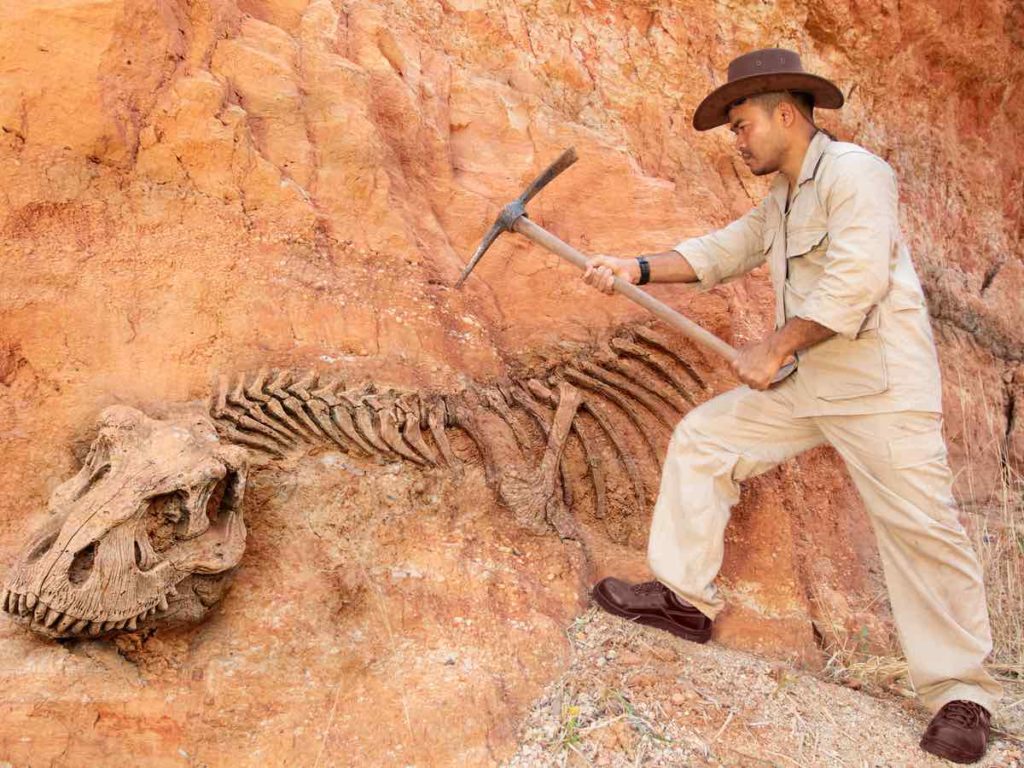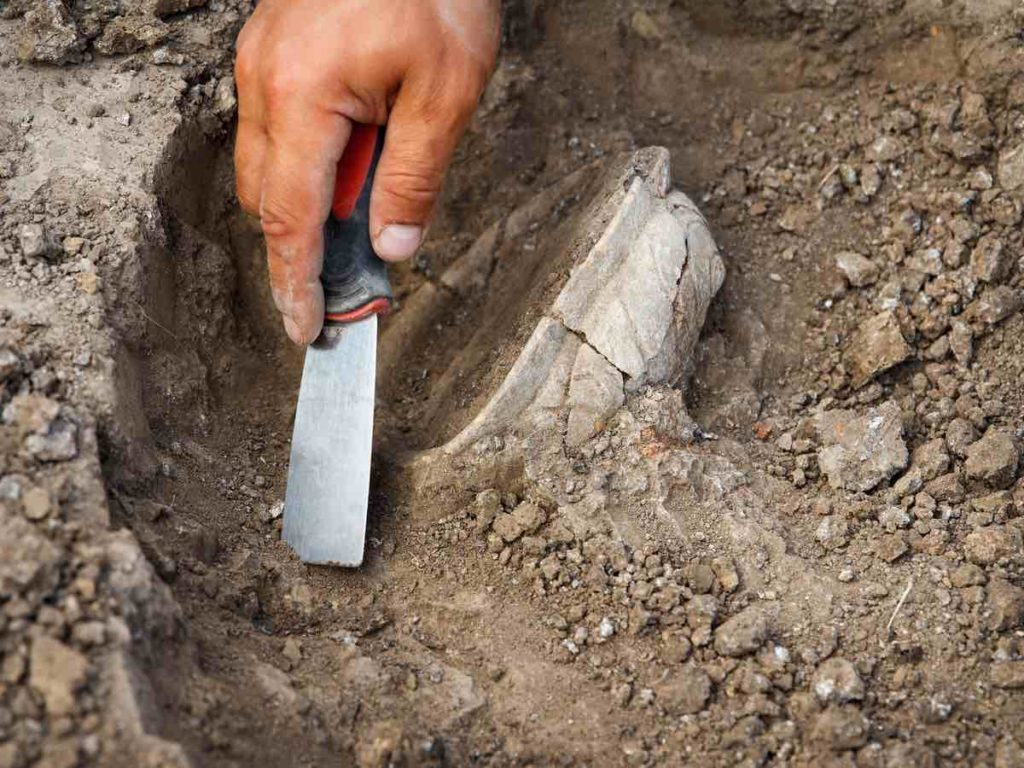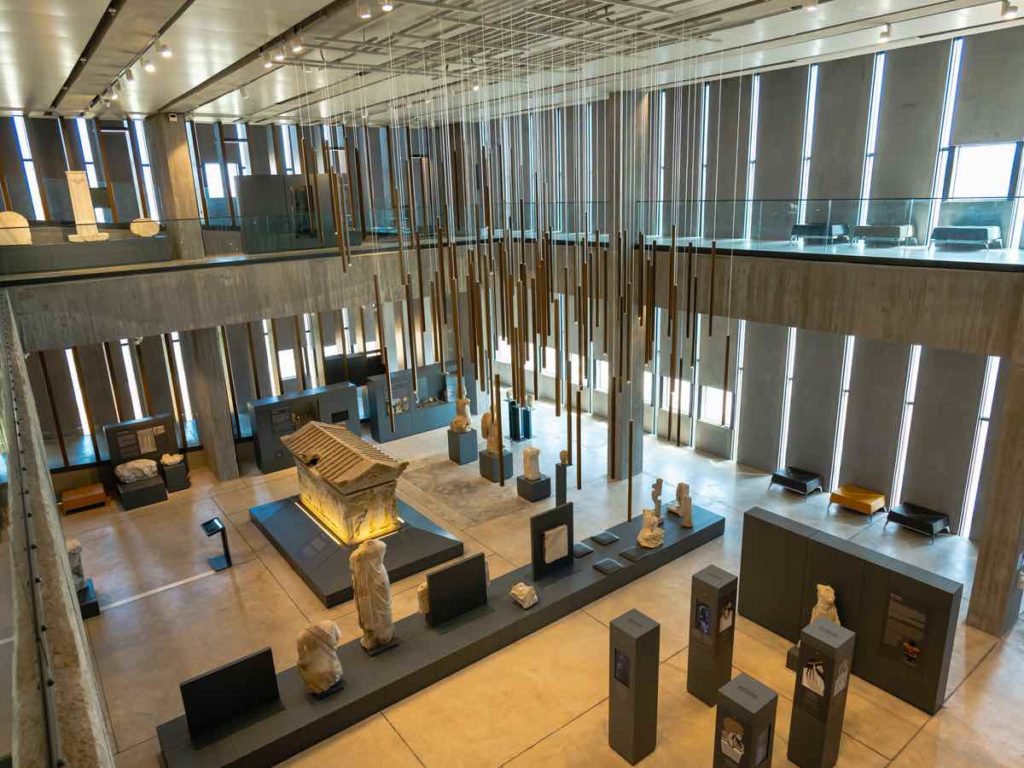Unearth Your Future: Is Archaeology a Good Major for You?
Nothing can fascinate you more than searches for lost tombs and cities.
Indiana Jones or Lara Croft (or both!) is your favorite fictional character, and movie nights with your friends is never without you bringing your The Mummy franchise Blu-ray discs.
Have you considered majoring in archaeology?
Archaeology is an awesome major for students interested in learning about humans and their cultures in the past by searching for and examining artifacts and other material remains.
It’s a great major for those looking to attend graduate school to become full-fledged archaeologists.
Individuals with an undergraduate degree in archaeology make an average of $63,940 annually.

Archaeology vs. Anthropology vs. Paleontology: What’s the Difference?
Many college-bound teens may have trouble differentiating archaeology from other disciplines.
In some instances, students lump archaeology and anthropology together, thinking they are one and the same — they may be closely related to each other, alright, but they have clear dissimilarities.
Archaeology and paleontology also have certain things in common, though they focus on different things.
Anthropology Studies Humans With a Different Approach
Both archaeology and anthropology study human activities in the past.
However, they do so in entirely different ways.
Archaeology studies human history and prehistory by recovering and analyzing artifacts, ecofacts, architectural structures, cultural landscapes, and other material remains.
On the other hand, anthropology does so by focusing on customs, language, and belief systems.
Paleontology is Limited to Ancient Life Forms
Both archaeology and paleontology aim to study life that existed in the past.
Yet, they rely on different kinds of evidence for answers.
While archaeology concentrates on finding and studying materials left behind by human beings in the past, paleontology focuses on searching and examining fossils of plants and animals, ranging from microbes to dinosaurs.
Simply put, fossils are preserved remains or impressions of various once-living things.
Is Archaeology the Major for Me?
Being fascinated with the material remains of past humans isn’t enough for you to choose archaeology as a major.
It’s also a must that you have a strong grasp of certain natural sciences, especially those that are necessary for understanding how and why human behavior has changed with the passing of time.
Should I Major in Archaeology?
Students with a curious mind who like unraveling mysteries of the past are likely to succeed as archaeology majors.
It’s for those willing to get their hands dirty, literally.
Some of the qualities that archaeology students have in common include:
- Interest in and knowledge of history
- Passion for understanding society and culture
- Like using a computer and software tools
- Ability to work well with their hands
On the other hand, the following are must-have skills?
- Analytical thinking
- Communication
- Concentration
- Detail-oriented
- Math
- Problem-solving
- Research
- Writing
Be warned: students majoring in archaeology have tons of books to read, dates to remember, and lectures to attend.
Compared to STEM and other hard science majors, archaeology isn’t that difficult, although you should be willing to study around 20 hours per week in order to get good grades.

Do You Have to be Good in Natural Sciences to Study Archaeology?
Having a solid foundation in various natural sciences is crucial for archaeology majors.
Enrolling in an archaeology degree with zero knowledge and interest in other subjects required for studying and interpreting archaeological finds may keep you from succeeding academically.
The following are the hard or natural sciences archaeology students must have proficiency in:
- Biology
- Chemistry
- Geography
- Geology
- Physics
- Zoology
Archaeology is a multidisciplinary field.
That said, it’s vital to demonstrate aptitude and interest not only in various natural sciences, such as the above-mentioned ones, but also in a handful of soft sciences.
Here are some of the soft sciences you must be knowledgeable in as an archaeology major:
- Anthropology
- Psychology
- Sociology
How to Become an Archaeologist
Many entry-level archaeology positions require only a bachelor’s degree.
However, it’s worth pointing out that an undergraduate degree in archaeology, whether a BS or a BA, may limit your career opportunities, usually to a field or laboratory assistant.
If the goal is to become a full-fledged archaeologist, you need to earn a master’s degree or a doctorate.
Usually, an archaeology degree at a bachelor’s level takes four years to complete.
On the other hand, a master’s degree in archaeology takes one to two years to complete, depending on whether you are attending graduate school as a part-time or full-time student.
The Register of Professional Archaeologists (RPA), a certifying body for archaeology in the US, requires not only post-graduate study in archaeology but also work experience supervising field and laboratory projects.

Best Archaeology Schools and Careers
It’s a good idea to earn your archaeology degree at an institution with a top-notch archaeology program.
After getting your hands on one, various career opportunities become available to you, although you will have to obtain a master’s degree in archaeology to be able to work as an actual archaeologist.
Archaeology Colleges: Which One to Attend?
Archaeology is one of the least popular degrees in the United States.
Based on the latest available data, American colleges and universities confer only more than 330 archaeology degrees per year, which is -98% popular compared to the national average for all degrees awarded.
Therefore, it’s a good idea to attend an institution with a top-notch program in archaeology that also provides sufficient academic and career support for undergraduate students to remain motivated.
As per US News, here are the top 20 best archaeology schools that undergraduate students might want to consider:
| Institution | Location |
|---|---|
| Stanford University | Stanford, CA |
| Yale University | New Haven, CT |
| Brown University | Providence, RI |
| Johns Hopkins University | Baltimore, MD |
| Columbia University | New York, NY |
| Cornell University | Ithaca, NY |
| University of North Carolina at Chapel Hill | Chapel Hill, NC |
| Washington University in St. Louis | St. Louis, MO |
| University of California, San Diego | La Jolla, CA |
| University of Southern California | Los Angeles, CA |
| New York University | New York, NY |
| Tufts University | Medford, MA |
| University of Washington | Seattle, WA |
| Boston University | Boston, MA |
| The Pennsylvania State University | University Park, PA |
| George Washington University | Washington, DC |
| University of California, Santa Cruz | Santa Cruz, CA |
| University of Missouri | Columbia, MO |
| University of Cincinnati | Cincinnati, OH |
| The Catholic University of America | Washington, DC |
Where Do Archaeology Majors Work?
Archaeology majors work in different environments and settings, depending on their jobs.
You can find most individuals with a bachelor’s degree in the following:
- Offices
- Laboratories
- Universities
- Museums
- Archaeological or excavation sites
Around 31% of archaeology majors in the United States work for companies and organizations involved in research and development in the social sciences and humanities.
On the other hand, approximately 21% work for the federal government.
Nearly one-fifth of archaeology majors are in management, scientific, and technical consulting services, while about 7% are in the field of engineering-related services.
Roughly 2% are self-employed.

Archaeology Major Jobs and Salaries
As mentioned, archaeology majors make an average of $63,940 per year.
Here are the highest-paying states for archaeology degree holders and their average income:
| State | Average Salary Per Year |
|---|---|
| District of Columbia | $120,560 |
| Hawaii | $84,820 |
| Oregon | $80,850 |
| Alaska | $79,870 |
| Idaho | $77,690 |
By now, we have established the fact that majoring in archaeology won’t make you an actual archaeologist, although it can land you many entry-level jobs, most of which are within or related to the field.
The following are some of the highest-paying careers for archaeology majors and their average salaries:
| Job Position | Average Salary Per Year |
|---|---|
| Urban planner | $78,500 |
| Technical writer | $78,060 |
| Data analyst | $77,037 |
| Geographic Information Systems (GIS) specialist | $70,280 |
| Tourism professional | $63,412 |
| Translator | $63,243 |
| Heritage manager | $62,162 |
| Archaeology fieldworker | $61,910 |
| High school teacher | $61,820 |
| Historic building inspector | $61,640 |
| Archivist | $58,785 |
| Exhibit designer | $57,701 |
| Field technician | $54,842 |
| Museum education officer | $54,319 |
| Museum technician | $50,120 |
Read Next: Anthropology Major: Good, Hard, High Paying?
Disclaimer: The views and opinions expressed in this article are those of the authors and do not necessarily represent those of the College Reality Check.





